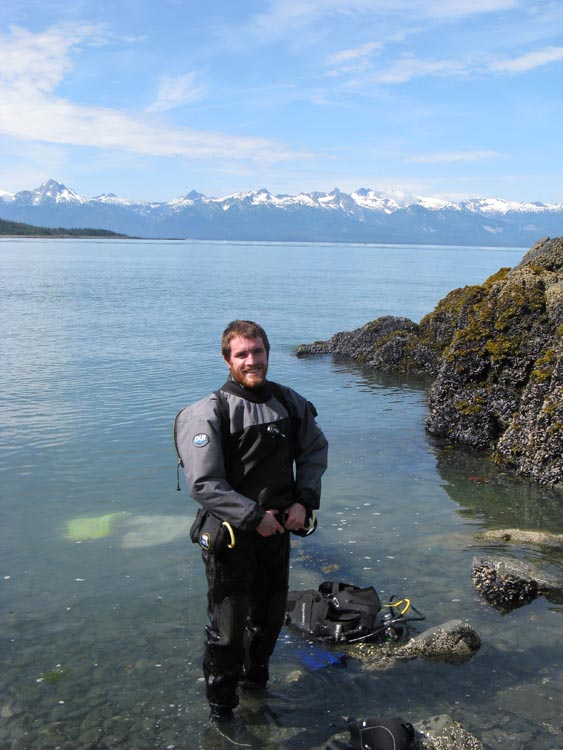Although all mortgage-paying adults may laugh and disagree, college graduation can be a very stressful time! In the months prior to graduation, college seniors are asked about their post-graduation plans several times a day. Since so many students aren’t sure what their next step is, their answer is usually a heavily edited version of “I don’t have a clue so it feels like unemployment is bearing down on me like a freight train! Never ask me again!” Then, students continue on in their scramble to maintain hard-earned GPAs, think about if graduate school is really right for them, and search the internet for their dream jobs (or at least for a way to survive without mooching off their parents for too long).
I found myself in that exact situation until last March, which is when I was overjoyed to learn that I was chosen to be the 2012 Our World Underwater Scholarship Society/National Park Service Submerged Resources Center Intern! By opening an unassuming email, I suddenly learned that I was being given the once-in-a-lifetime opportunity to live, work, and SCUBA dive in the nation’s most beautiful parks for several months. The intern is free to travel to distant areas of the National Park system while working with some of the nation’s leading scientists, law enforcement rangers, and other diving experts. With my head still spinning from the possibilities that suddenly opened up to me, I quickly called Dave Conlin, Chief of the Submerged Resources Center (SRC), to accept this great offer and start arranging the internship!
On August 6, I flew to the SRC office in Denver, Colorado after months of excitement and anticipation – the internship finally began! The SRC team is made of underwater archaeologists, photographers, and anthropologists who identify, document, and study the underwater resources of the United States. They have successfully executed a huge variety of projects, ranging from the recovery of the world’s first successful combat submarine (the H.L. Hunley) to the filming of thermal vents at Yellowstone National Park. Because the SRC works with so many different people all across the country, they are the perfect team to help me arrange months of my own travel.
I spent the week eagerly meeting the members of the SRC, investigating prospective parks, and trying out the National Park Service dive gear that I get to use for the next few months. As I met the team on Monday, it was instantly obvious that they are deeply committed to the mission of the SRC and to the success of this internship. For an office that has already given me so much by creating this internship, they sure don’t act like it! Everybody was so excited to help me in any way they could which included letting me stay in their homes, providing me with SCUBA training materials, showing me the beautiful city of Denver, and offering invaluable assistance with contacting and arranging travel to other parks. Thank you all so much for all your help and kindness!
At the end of the week, I undertook the Blue Card certification, which is a requirement to dive for the National Park Service. Requirements for receiving the certification involved timed swimming tests, demonstration of several SCUBA skills in a local pool, and a written exam covering diving principles, safety, and NPS diving protocol. Now that I have passed the Blue Card test, arranged most of my travel, and received great advice from the SRC, it’s time to continue this adventure. I’ll be helping with projects ranging from recovery diving in the murky waters of Utah reservoirs at Glen Canyon National Recreation Area to coral reef research in the National Park of American Samoa, so check back here to see where I head off to next!

I am thrilled to join the SRC as the 2012 OWUSS/NPS Intern. Previously, I’ve worked in the field on a variety of research projects including this NSF funded project in Alaska studying trophic cascades in kelp forests in order to understand human impacts on the king crab fishery.

